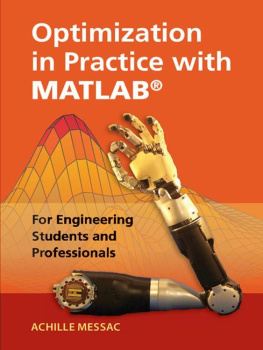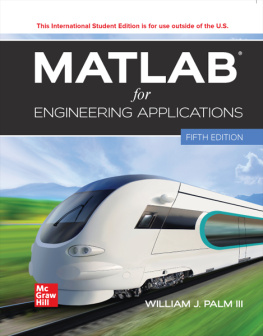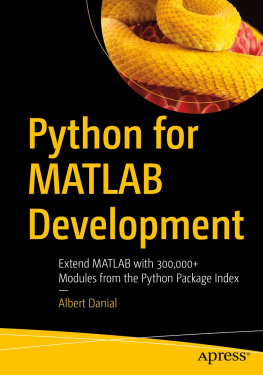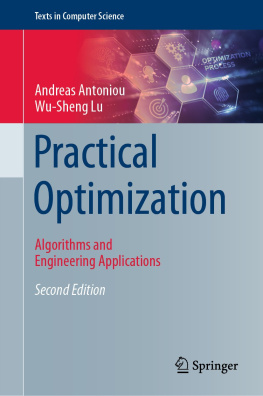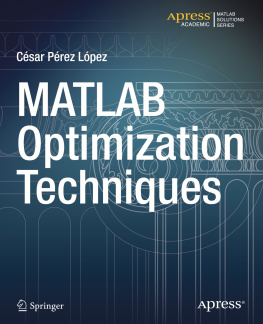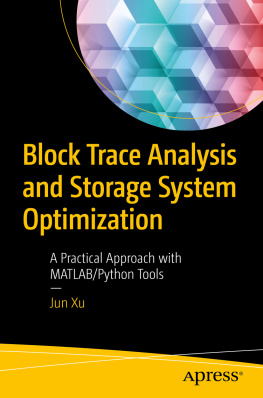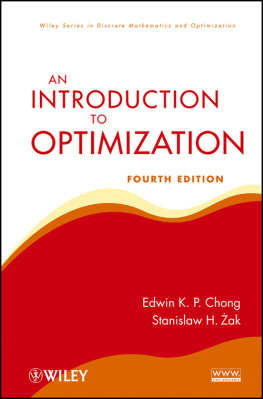OPTIMIZATION IN PRACTICE WITH MATLAB
FOR ENGINEERING STUDENTS AND PROFESSIONALS
Optimization in Practice with M ATLAB provides a unique approach to optimization education. It is accessible to junior and senior undergraduate, and graduate students , as well as industry practitioners. It provides a strongly practical perspective that allows the student to be ready to use optimization in the workplace. It covers traditional materials, as well as important topics previously unavailable in optimization books ( e.g., Numerical Essentials for successful optimization).
Outstanding features include:
Provides practical applications of real-world problems using M ATLAB .
Each chapter includes a suite of practical examples and exercises that help students link the theoretical, the analytical and the computational. These include a robust set of real-world exercises.
Provides supporting M ATLAB codes that offer the opportunity to apply optimization at all levels, from students term projects to industry applications.
Offers instructors a comprehensive solution manual with solution codes along with lectures in PowerPoint with animations for each chapter. The M ATLAB m-files are available for download from the books website.
Instructors have the unique flexibility to structure one- or two-semester courses that may range from gentle introductions to highly challenging, for undergraduate or graduate students.
Dr. Achille Messac received his BS, MS and PhD from MIT in Aerospace Engineering. Dr. Messac is a Fellow of the American Institute of Aeronautics and Astronautics (AIAA) and the American Society of Mechanical Engineers. He has authored or co-authored more than 70 journal and 130 conference articles, chaired several international conferences, delivered several keynote addresses, and received the prestigious AIAA Multidisciplinary Design Optimization Award. He has taught or advised undergraduate and graduate students in the areas of design and optimization for more than three decades at Rensselaer Polytechnic Institute, MIT, Syracuse University, Mississippi State and Northeastern University.
Optimization in Practice with MATLAB for Engineering Students and Professionals
Achille Messac, PhD


32 Avenue of the Americas, New York, NY 10013-2473, USA
Cambridge University Press is part of the University of Cambridge.
It furthers the Universitys mission by disseminating knowledge in the pursuit of education, learning and research at the highest international levels of excellence.
www.cambridge.org
Information on this title: www.cambridge.org/9781107109186
Achille Messac 2015
This publication is in copyright. Subject to statutory exception and to the provisions of relevant collective licensing agreements, no reproduction of any part may take place without the written permission of Cambridge University Press.
First published 2015
Printed in the United States of America
A catalog record for this publication is available from the British Library.
ISBN 978-1-107-10918-6 Hardback
Additional resources for this publication at www.cambridge.org/Messac
Cambridge University Press has no responsibility for the persistence or accuracy of URLs for external or third-party Internet websites referred to in this publication and does not guarantee that any content on such websites is, or will remain, accurate or appropriate.
M ATLAB is a registered trademark of The MathWorks, Inc.
Contents
7.3.4 Design Variable ScalingOptimization Code Decimal
Accuracy Setting (DV-3)
7.3.5 Design Variable ScalingCombining Order of Magnitude and
Desired Tolerance (DV-4)
List of Figures
List of Tables
Preface
Contacting the Author Regarding this Book
I am delighted that you are using this book in your study of, or involvement with,optimization. I would very much welcome your comments, particularly regarding this first edition, and any suggestions that you might have for the next edition.For your comments regarding this book, I will be happy to receive your direct email at OptimizationInPracticeMessac@google.com .
Book Website
The website www.cambridge.org/Messac will be maintained for this book.Information for instructors and students will be separately provided. Software for various problems will be provided in this website. I expect it to be a dynamic website, where the information available will evolve over time to be responsive to readers requests and feedback.
Book Organization
This book is intended to be used by undergraduate and graduate students in the classroom, or by industry practitioners learning independently. Its organization suits these objectives. Following are messages specifically tailored for students, for industry practitioners and for instructors. The book has five parts:
Part I | Helpful Preliminaries |
Part II | Using OptimizationThe Road Map |
Part III | Using OptimizationPractical Essentials |
Part IV | Going Deeper: Inside the Codes and Theoretical Aspects |
Part V | More Advanced Topics in Optimization |
, we learn optimization at a deeper level, where advanced topics are introduced over six chapters.
A Message to Students
As this book reaches your hands, you may have already signed up to take an optimization course, you may be in your junior or senior year or a graduate student, or you may already be in industry and feel that optimization may be useful to you. Regardless of what the case may be, you probably have two important questions in your mind: (i) Why should I learn optimization?and (ii) Is this a good book for me to use to learn optimization? Let me provide you with some objective comments, together with some subjective thoughts.
Why should you learn optimization? The truth is this. If you are an engineer or about to become one, if you are a financial analyst, or if you deal with numbers to determine how desirable or undesirable the performance of a system or a design is, then optimization will almost certainly be able to help you do a better jobwithout fail. Optimization applies to most engineering activities, management operations activities and numerous other fields where performance (or goodness ) can be numerically quantified.
More importantly, if you are trying to design a system that must perform a certain way, you have unsuccessfully tried all that you know, and you have already asked the experts for help without success, then there is a good chance that optimization will help you succeed. Interestingly, it would not be at all surprising that the expert may find it too difficult to obtain an adequate answer,when optimization can be successfully used to find one. This is, in part, because optimization can intelligently examine thousands of design alternatives in less time than it takes the expert to examine a single design alternative. Optimization can also perform an intelligent search in a complex environment that may not be clear to the human mind. Optimization essentially makes it obsolete to engage in the typical trial-and-error process, as we search for a good design.
The following are some important comments regarding the rapidly growing popularity of optimization in recent years, and about how this book offers a unique approach to bringing optimization to a broader audience.
Next page
